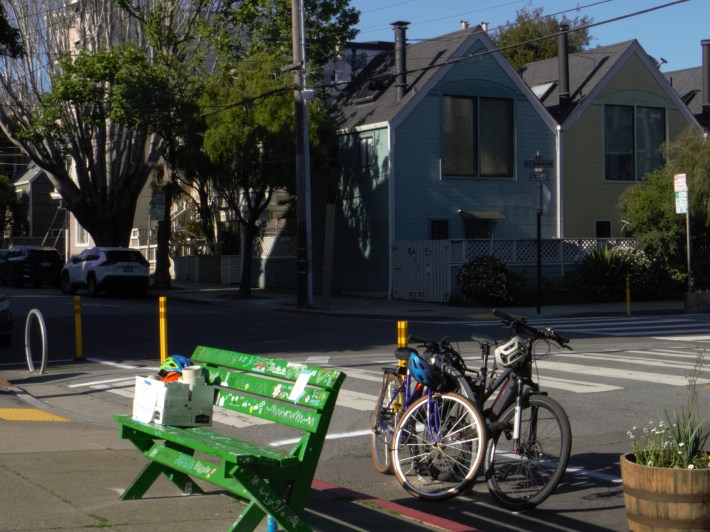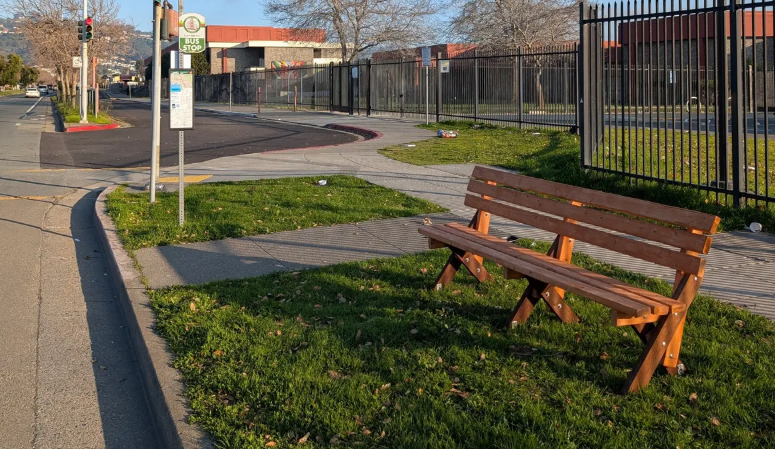At its regular meeting Tuesday, May 27th, the Richmond City Council instructed its staff to create a permit program to allow community members to install benches at bus stops.
“This victory was hard-fought and deeply meaningful. Some of my colleagues and staff raised valid concerns about safety and liability—which is exactly why this policy was necessary," said Councilmember Jamelia Brown, who championed the policy, as quoted in a Transbay Coalition statement about the directive.
The SF Bay Area Bench Collective, another advocacy group, has already installed benches at some 70 bus stops in the East Bay, including several in Richmond. “We're looking forward to being able to work with more groups, nonprofits, houses of worship, schools, and others to get more benches out, while also working with the city to make sure the benches are reliable and built to the highest standards," said Bench Collective founder Mingwei Samuel.
As Streetsblog readers are aware, there's a growing trend in Bay Area cities, where citizens—fed up with the conditions on their streets and the unwillingness of city transportation departments to fix things—take matters into their own hands and install bus benches, planters, and simple traffic-calming elements.
However, as happened recently in Oakland and San Francisco, bad actors in city bureaucracies frequently order the removal of these installations, even when they've proven successful at making a street safer. They justify this with claims that it exposes the city to additional liability. The Richmond ordinance aims to take that excuse away.

It is hoped that Richmond "forms a path for other cities to formalize community improvements to the streetscape," wrote an advocate involved in resident installations in San Francisco, in an email to Streetsblog. "I would love for the city to legalize things such as community benches at bus stops or using daylit spaces for bike racks and planters."

"We're looking forward to other cities legitimizing and adopting citizen-built benches and other infrastructure. Ultimately, cities, the state, and country should prioritize these necessary amenities, transit funding, and safe-street infrastructure, but they aren't (the opposite, in fact), so in the meantime, anything that empowers communities to do it ourselves is good," wrote Samuel in an email to Streetsblog.
The Richmond City Council hopes to have a process ready in September. "We matched that grassroots commitment with government action—creating a legal pathway that supports, not punishes, community care. This is what responsive, people-powered policymaking looks like, and I’m proud Richmond is leading the way,” wrote Brown.





